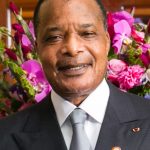Politics
Republic of the Congo Politics
This page explores Republic of the Congo’s political structure incorporating real-time RSS feed news and videos. By harnessing the power of RSS feeds, visitors can stay informed about the latest developments in Republic of the Congo’s politics as they happen. The dynamic nature of these feeds ensures that users receive up-to-the-minute updates on political events, policy changes, and significant milestones, enabling them to stay abreast of the ever-evolving political scene.

Denis Sassou Nguesso
President of the Republic of the Congo
Incumbent
Assumed office
25 October 1997
Image credit
The Republic of the Congo, often referred to as Congo-Brazzaville to distinguish it from its neighbor, the Democratic Republic of the Congo, had a political structure characterized by a presidential republic system. Here’s an overview of the political structure in the Republic of the Congo:
Head of State and Government: The President of the Republic of the Congo is both the head of state and head of government. As of that time, Denis Sassou Nguesso served as the President. He had been in power for several decades, with multiple terms.
Legislature: The Republic of the Congo has a bicameral legislature consisting of two houses: the National Assembly (Assemblée Nationale) and the Senate. Members of the National Assembly are elected by popular vote, while the Senate includes members appointed by various local and regional bodies.
Political Parties: There are several political parties in the Republic of the Congo, with the Congolese Labour Party (Parti Congolais du Travail, or PCT) being the dominant party. President Sassou Nguesso is associated with the PCT.
Elections: Presidential elections are typically held every seven years, while legislative elections are also held periodically. The political landscape has seen shifts and changes over the years, and opposition parties have participated in elections.
Judiciary: The judicial system in the Republic of the Congo includes a Supreme Court and a Constitutional Court, among other courts. The judiciary is tasked with upholding the rule of law and ensuring the constitutionality of actions taken by the government.
Local Government: The country is divided into regions, departments, and communes, each with its own local government structure.
Challenges: The Republic of the Congo has faced challenges related to governance, political stability, and economic development. There have been periodic political tensions and allegations of human rights abuses.
Unless other sources are listed, original content is provided by ChatGPT. ChatGPT may produce inaccurate information about people, places, or facts. #RepublicoftheCongo #RepublicoftheCongoPolitics #RepublicoftheCongoNews #RepublicoftheCongoNewsToday #RepublicoftheCongoRSSFeed #BlahFace



